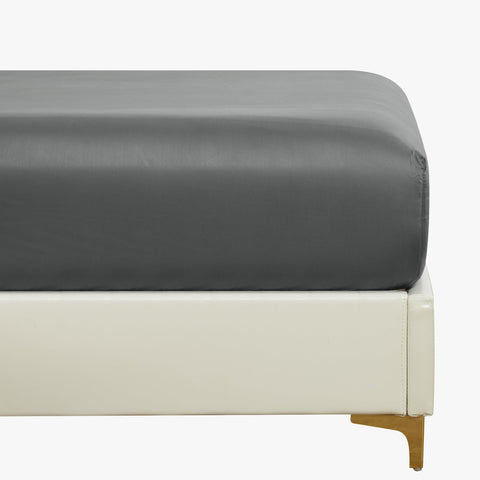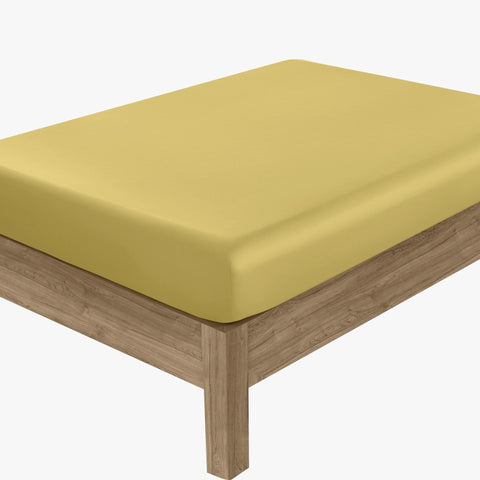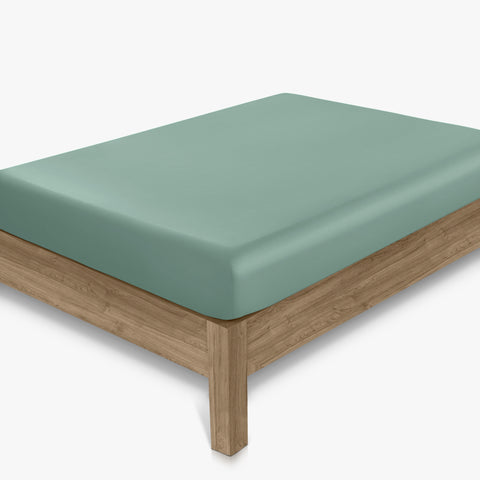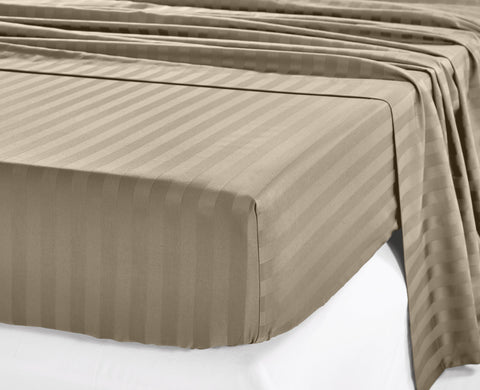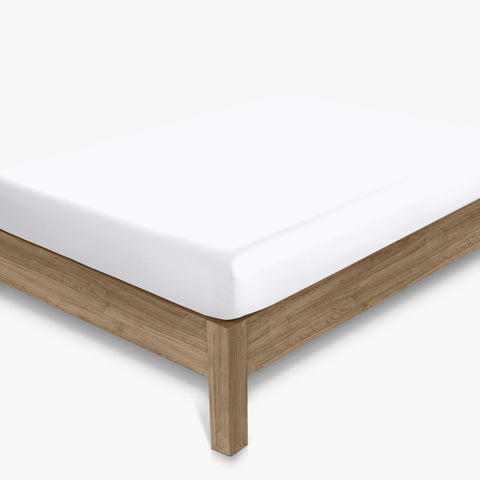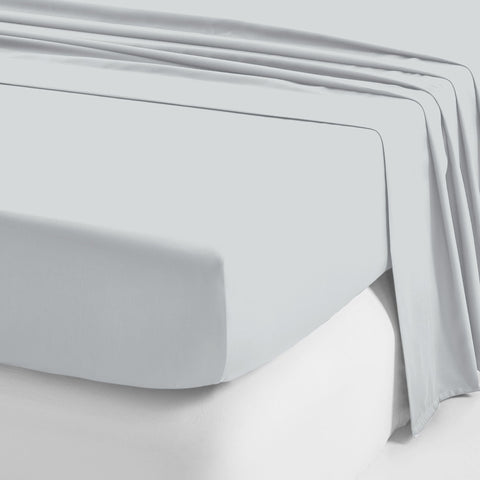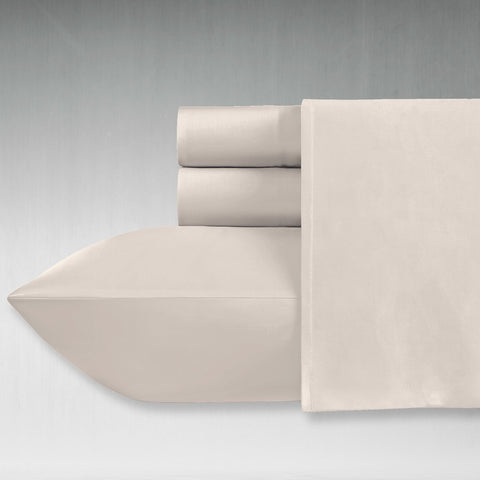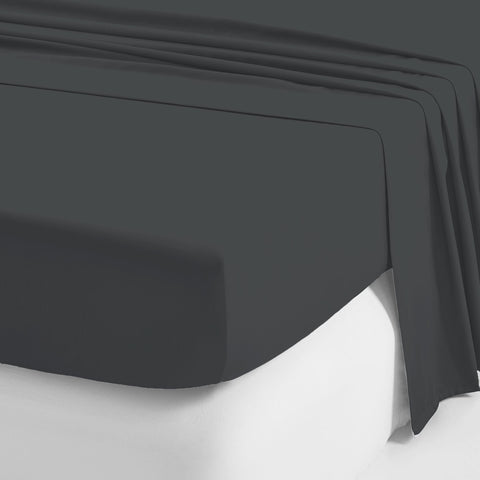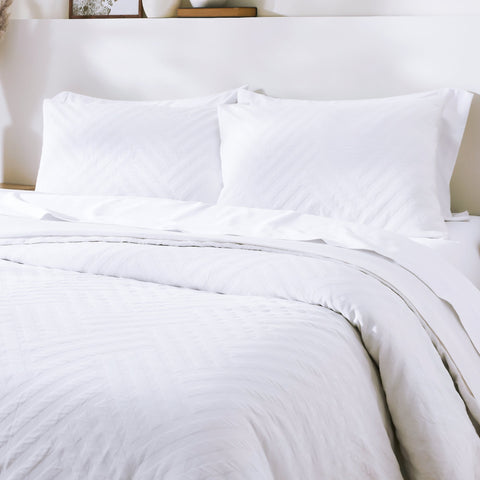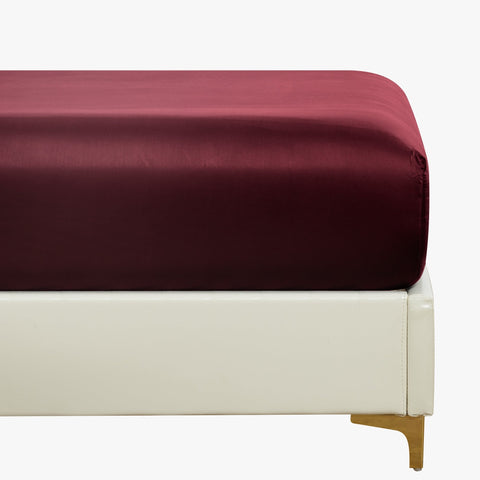
Do Cooling Sheets Actually Work?
Cooling sheets are becoming increasingly popular and many claims that the technology behind the fabrics used helps cool down the body.
Night sweats and overheating are common among humans so it’s best we find a way to treat them while we sleep.
Do cooling sheets actually work?
To adequately answer that, let’s take a closer look at their fundamentals.
What this article covers:
How Do Cooling Sheets Work?
A thin piece of cotton bedding that’s been infused with a cooling chemical is known as a cooling sheet.
As you put the sheet on top of your bed, the cooling ingredient, which is typically water or gel, evaporates.
Hot flashes and nocturnal sweats are relieved as a result of this process, which also cools the sheets underneath.
What to Look for in Cooling Sheets
Finding the perfect cooling sheet is more than choosing a cooling sheet from the best bed sheet for the summer catalog. Certain difficulties make finding a cooling sheet a challenging task.
For starters, everyone has a unique body.
Typically, the body sweats to reduce heat when it becomes heated, but occasionally you might be warm without perspiration.
You could also experience cold sweats without feeling warm. This could be because of hormonal fluctuations, stress, or sickness.
Types of sheets
The first type of cooling sheet is called a breathable sheet. They promote airflow, which stops sweat from condensing.
If you’re a frequent night sweater, absorbent sheets will catch the sweat.
Finally, moisture-wicking sheets draw moisture away from your skin and channel it outside the sheets. The perspiration then dissipates into the air from there.
Construction and Material
The next thing to look out for when deciding what are the best cooling sheets is seeing what the sheet is made from as well as the thread count and weave after construction.
Natural sheets
A natural sheet is a safe option for mild perspiration. Cotton and other natural fabrics have long been used to make cooling sheets.
They have stood the test of time, making them a reliable option.
Natural cooling bedsheets are made from materials that are naturally breathable, which allows air to circulate better and prevents the buildup of heat and moisture. They can also absorb moisture from the body, which helps to regulate body temperature and prevent night sweats.
They’re highly breathable, absorb moisture better, and are environmentally sustainable.
Synthetic Sheets
Polyester, microfiber, or high-tech performance blends are typically used to make synthetic sheets.
However, synthetic sheets are less breathable than natural sheets, and they can trap heat and moisture, making them less comfortable.
Superior Cotton Sheets
In general, cooling sheets are made of one of three types of superior cotton. These are Pima, Supima, and Egyptian.
Pima
Some of the coolest bedding can be made with Pima cotton.
Compared to conventional cotton fibers, its fabric is finer, smoother, and stronger.
It was woven in Portugal entirely from Pima cotton. Also, it’s the thinnest sheet we’ve ever tried.
Due to the extremely fine yarn used, pima is incredibly light. The manufacturers have to work with small batches to produce this exquisite cotton.
To produce that level of fineness, the yarn must be spun and wove considerably more slowly.
Supima
The ideal cotton for cooling sheets is Supima.
It’s farmed in America and boasts the longest staple fabric seen in sheets.
There are fewer loose ends in Supima fiber and they’re far less prone to produce pills or rough little balls on the surface of the sheet.
Supima's dependability is its best quality. From the cotton field to the final sheet, it’s strictly regulated.
Supima isn’t combined with other fibers and it isn’t woven on the same machines as textiles made with fibers other than Supima.
DNA markers are added to Supima cotton to avoid adulteration.
The only drawbacks to Supima are its price and somewhat limited availability.
Egyptian Cotton
The term Egyptian cotton is often misused.
Egyptian cotton was the benchmark for cotton bedding. Despite it being prone to wrinkles, it was sturdy and comfortable.
Nonetheless, the phrase Egyptian cotton is now frequently misused.
Many producers claim that their sheets are made entirely of Egyptian cotton, but there’s no oversight structure in place to verify the validity of their assertions.
Thread Count
The ideal cooling sheets often have a medium thread count.
Compared to low thread count sheets, high thread count sheets seem cozier and more durable. They’re frequently stronger, but high thread count sheets have two drawbacks.
The first is that real high thread count sheets are challenging to come by.
The number of threads used in a square inch of cloth is known as the thread count.
A finer yarn must often be used by producers to raise a sheet's thread count. The sheet is often of superior quality as a result.
Customers then started looking for sheets with a high thread count.
Several manufacturers started enhancing the thread counts of their sheets artificially.
The second drawback is that sheets with a high thread count retain heat.
To fit in all those fine yarns, sheets with a high thread count have a tighter weave.
Due to this, there are fewer and smaller spaces between the threads due to the tighter weave, heat is contained rather than allowed to escape.
You should choose sheets with a medium thread count, typically between 200 and 300 if you want cooling sheets.
Weaves
The optimum weave for cooling sheets is typically percale.
Percale and sateen are the two most popular weaves for cotton bedding.
Percale is thin, crisp, and long-lasting.
Sateen has a beautiful sheen on its surface and is soft and silky.
Since Percale is lighter than Satin, it features a looser weave that allows heat to escape and produces cleaner sheets with better ventilation.
Sateen, however, is more drapey than percale and is dryer. Since it’s much closer to your body, it will soak up any extra sweat that may be on your skin.
Cooling Sheets Fabrics
Cotton
Cotton fabrics have long been a popular option for a variety of uses, including apparel and bed linen.
Cotton is naturally breathable, and the way it is woven helps to further increase its cooling properties, producing some of the best sheets and comforters for hot sleepers.
The fabric is also crease- and noise-resistant due to the silkier texture as compared to the other fabrics.
These sheets are a great choice if you want to stay cool. The two best qualities of cotton cooling sheets are their ability to absorb moisture and transmit heat.
Chances are that when you’re looking for the best soft sheets that do a great job at cooling your body, it will most likely be a cotton cooling sheet.
Bamboo
Bamboo fibers have advantageous characteristics when it comes to cooling sheet fabrics.
Many believe that this fabric is supple, breathable, and more flexible when compared to the others.
Bamboo fibers also have the added benefit of being naturally antibacterial and antifungal.
This fabric is effective at releasing the heat that is stored in your body.
Bamboo has the incredible capacity to control your body's temperature and keep you cool all night long, allowing you to get the rest you deserve. It’s the perfect sheet for summer.
TENCEL
TENCEL sheets are made from eucalyptus lyocell and stand as one of the more premium cooling sheet fabrics.
These fibers are the most breathable when compared to bamboo and cotton
They also offer temperature-regulating qualities, significantly increasing their appropriateness for use in cooling bed twin fitted sheet.
Since they are so great at controlling moisture, they can successfully manage the temperature.
This is because the structure of natural fibers makes it simple to absorb and release extra moisture, which lowers your body temperature and prevents sweating for hot sleepers.
These cooling sheets are more resilient to tearing than cotton and bamboo fabrics.
The fibers' smooth surface area makes them feel silky smooth and soft, making them particularly soothing and perfect for delicate skin.
The rate of bacterial growth is due to the bamboo's superior moisture management abilities making it impossible for bacteria to flourish.
These cooling sheets are normally more expensive than cotton and bamboo sheets, but they’re well worth the investment for a comfortable, cool night's sleep.
Conclusion
Cooling sheets have been proven time and time again to effectively cool the body.
Many of us suffer from night sweats and general overheating, so being able to cool down your body without using a fan or taking a cold shower works wonders.
These cooling sheets come in a variety of colors and fabrics, so be sure to choose the one that makes your body feel its best.
So before you purchase your new queen-fitted sheet, ensure that it has cooling capabilities if you know that you’re a hot sleeper.
Did you find the blog beneficial? If so, consider exploring our other guides.
- What Are the Warmest Sheets?
- The Thickest Bed Sheets for Winter
- What Bed Sheets Do Hotels Use
- Best Hotel Sheets
- Why Are Hotel Sheets So Comfortable?
- Why Are Hotel Sheets So Crisp?
- Types of Sheets
- What Does GSM Mean for Sheets
- What Makes a Good Bed Sheet
- When to Replace Bed Sheets
- What Color Sheets Don’t Show Stains
- Best Color for Bed Sheets in Feng Shui
- Best Color Sheets for Guys
- Best Bed Sheets for Airbnb
- Does Airbnb Provide Towels and Sheets?

